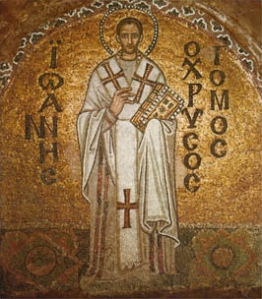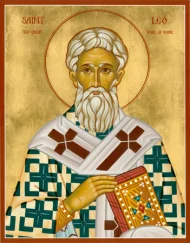 All who are led by the Spirit of God are sons of God.
All who are led by the Spirit of God are sons of God.
The Spirit you have received does not enslave you and make you afraid.
No; you have received the Spirit of sonship so that you cry out, ‘Abba, Father!’
The baptized know the power of this word, for they are rightly instructed to use it for the first time when they say the Lord’s prayer after their Baptism.
[…]Our Father is the first word we speak after our marvellous rebirth in Baptism.
We have been taught that as the Spirit gives the wisdom that enlightens the foolish, the power by which weak human beings have raised the dead and cast out devils, the gifts of healing, of prophecy and of tongues, so also the Spirit makes us sons of God.
[…] We recognize the Spirit’s gift that makes us God’s sons from the fact that he inspires whoever receives it to call God ‘Father’.
In his desire to make us realize that we really are sons of God, Paul made use of a Hebrew word.
He said not only ‘Father’, but ‘Abba, Father’, which is the word used in addressing a father by one who is in actual fact his son.
Then, after speaking of what we gain from our new way of life with its gift of grace and freedom, St Paul shows in still another way the dignity of divine adoption.
He says: The Spirit of God joins with our spirit to declare that we are sons of God.
But if we are sons we are also heirs, heirs of God.
And we are not only heirs but something even greater: we are coheirs with Christ.
[…] If it is an inexpressible grace to be a son of God, think what it means to be also an heir!
And if this is something great, how much greater it is to be a coheir with God’s only Son!
Then, to show that grace is not the only factor upon which this gift depends and at the same time to make his words more credible, he continues: provided we suffer with Christ, in order that we may also be glorified with him.
In other words, if we share with him in what is painful, much more shall we share in what is blissful.
Since God bestowed such great blessings upon those who had no good deeds to their credit, when he sees that they have endured trials and much suffering he can hardly fail to repay them with even greater blessings.
John Chrysostom (c.347-407): Homilies on Romans 14.3 ; from the Monastic Office of Vigils, Sunday of the Third Week of Ordinary Time, Year I.








